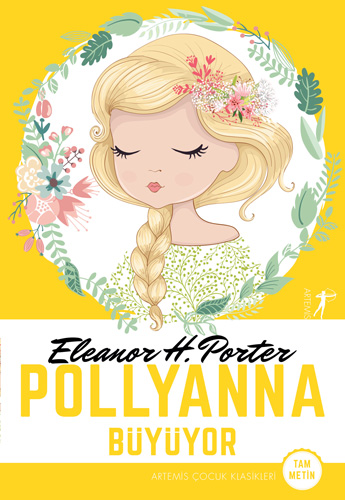
When she gasps in rapture upon being sent to her room to read a pamphlet about houseflies and hygiene, it's impossible not to roll your eyes. On the surface, Pollyanna carries more than a whiff of this drippiness. I cannot break the Sabbath.") To be a good young girl in much of the sentimental, quasi-Christian literature of the day was to be a bit of a pill. The insufferable Elsie Dinsmore, who first appeared in 1867, follows the Ten Commandments so rigidly she refuses to sing for her father on Sunday. Think of sickly, saintly Beth March in "Little Women," or impossibly optimistic Rebeccaof Sunnybrook Farm. It's a charming story, and Pollyanna is a charming character, one of the most likable of a slew of similarly cheerful, pious, and-oh, let's just say it-goody two-shoes girls that populated novels throughout the 19th and early 20th centuries. Sure enough, Aunt Polly, who sniffs on page two that her sister "was silly enough to marry and bring unnecessary children into a world that was already quite full enough," closes the novel by opening her heart to love and "gladness." The End. Some things haven't changed in 100 years: If a rich single woman appears in a story, you can be sure she has some lessons to learn. Pollyanna uses the game to spread good cheer among townspeople including a self-pitying invalid, a grouchy old miser, a poor orphan, a fire-and-brimstone preacher, and more. What was all the fuss about? The book opens with poor, orphaned Pollyanna Whittier arriving in a small Vermont town to live with her wealthy Aunt Polly, "forty now, and quite alone in the world." Young Pollyanna has been taught by her father how to play "the glad game," in which the goal is to "find something about everything to be glad about," whether it's a disappointing Christmas gift or life-long illness. The Atlantic's 1863 Case for Why Jane Austen Is Great Mary Pickford paid $115,000 to produce and star in a 1920 silent version of the story, and Hayley Mills won a special Academy Award for her portrayal in the 1960 Disney version. It spawned 12 sequels, a Broadway production starring Helen Hayes, and a popular board game. The novel became a bestseller immediately, with new printings ordered at least monthly for a year. That "simple little book" was Pollyanna, which marks its centennial this month to remarkably little fanfare, considering the enduring name recognition of its heroine. "They take that simple little book to their hearts just because they like it, not because it happens to be the fashion to read it, or because one can be thought a 'highbrow' by talking about it."

"Every now and then a large number of widely separated individuals will pick out some book to like, some simple little book that comes without much heralding, without the protection of a well-known author's name," the editor and translator Grace Isabel Colbron wrote in 1915 in the literary journal The Bookman.


 0 kommentar(er)
0 kommentar(er)
